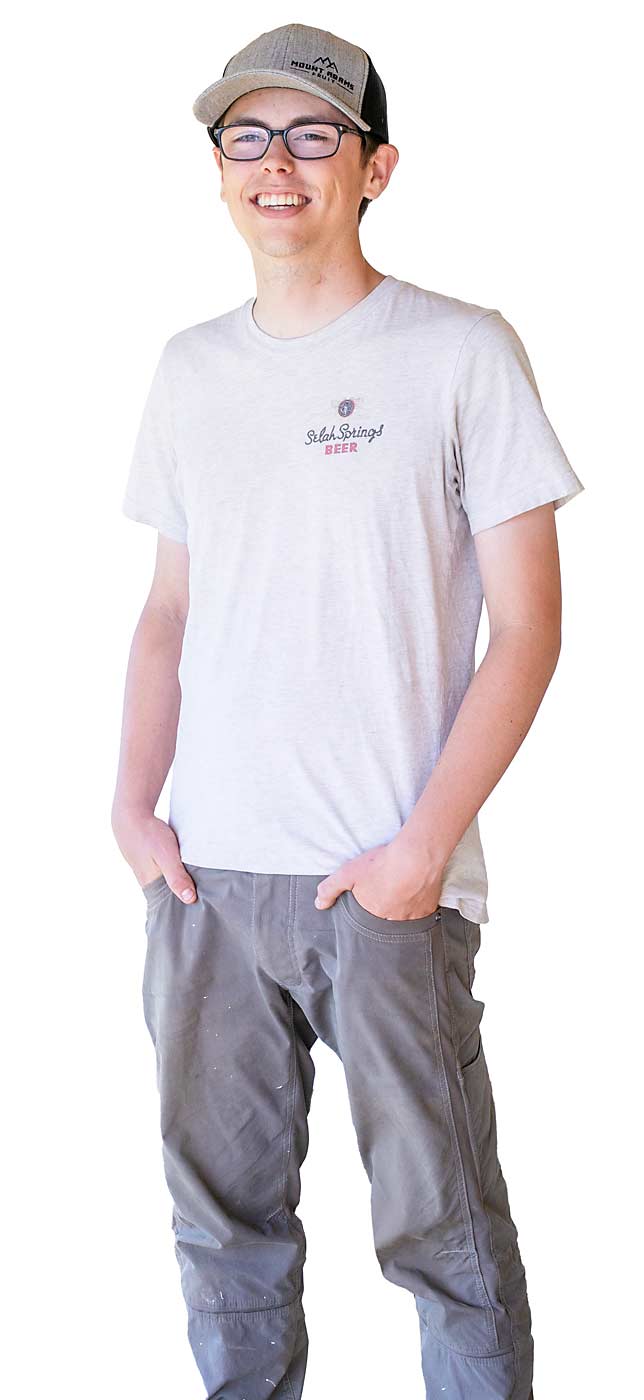family background/ Reid earned a bachelor’s degree in integrated plant sciences from Washington State University. He is the son of Renae and Darin Donaldson.
age/ 23
hometown/ Yakima, Washington
crops/ pears, apples, cherries
business/ Mount Adams Fruit

How did you get your start?
I’ve always been interested in biology and how plants work, and the names of plants and which plants are edible and which ones are not. Why these grow here and why those grow there. I chose the integrated plant sciences degree to go into the fruit and vegetable industry because it was more of a challenge and not something that I could skate by on. My dad always said that I should do something that’s hard, and to strive and struggle. That way I can succeed and have the effort pay off in the end. Because of that perspective, I chose the path I wanted, even though I knew it was going to be harder and more of a challenge to accomplish it. It’s something I can be proud of.
What did you learn in college and in the field?
I look at college as the framework — where you learn and understand the physiology and the science behind everything that’s happening in the soil. But in the field, you’re learning a whole new thing about spray chemistry and new terminology and stuff that you didn’t learn in college. I think you need both to succeed in this industry. I started my internship at Mount Adams Fruit my sophomore year of college, during the summer. My first jobs involved a lot of data collection, basic fruit counts and stuff that’s necessary, but maybe not that fun. I did that for two summers, and in my last internship year, during my senior year, I got a job offer. I accepted it and moved to the farm in White Salmon, Washington, in December. I graduated a semester early and I wanted to start right off the bat just as the season started. Being a fieldman, a horticulturist or an orchard manager was something where I can apply those sciences into the real world. That is what I wanted.
What challenges are you working on?
A lot of the problems in the field are different than what you’re taught in school. You have to be prepared that there’s kind of a textbook approach and then there’s live, real-life scenarios where the textbook really doesn’t work. Now I’m evaluating fruit set and crop quality and disease scouting, stuff like that. I’m going around the field, helping with projects. And a big project that I’ve been working on is the irrigation project, which is creating a more scientific approach to irrigation, rather than just the old 24-hour set with hand lines.
What are you looking at for the future?
I think it would be automation, but automation to an extent because you’re always going to need labor. I think a lot of people are saying automation is going to take over everything. I believe you’ll always need people and there will need to be a balance between automation and labor. I also think improving logistics will need to happen. There’s a lot of logistics to get 140 acres operating efficiently. For instance, how can we find a way to apply water to only five acres off of this pump and only 10 acres on a different block? You can’t put too much over here, because it will reduce the water pressure on the other side and then be too much in a different area blowing the line. Improving system logistics at the farm level requires a way to figure out those puzzles.
What advice would you give other young growers?
The internship is really a process that you should work on throughout your college career. I think you should start it early so you can learn stuff from the field. And then when you’re taking classes, you can apply it. Whereas if you wait too long, I think you’d go through college learning everything for the degree but not making connections to the real world. If you start early, you’re able to understand and come up with ideas and maybe solve some of the problems that you’ve seen in the field, based on what you’ve learned.






Reid is one in a million, but had great parents. Good article.